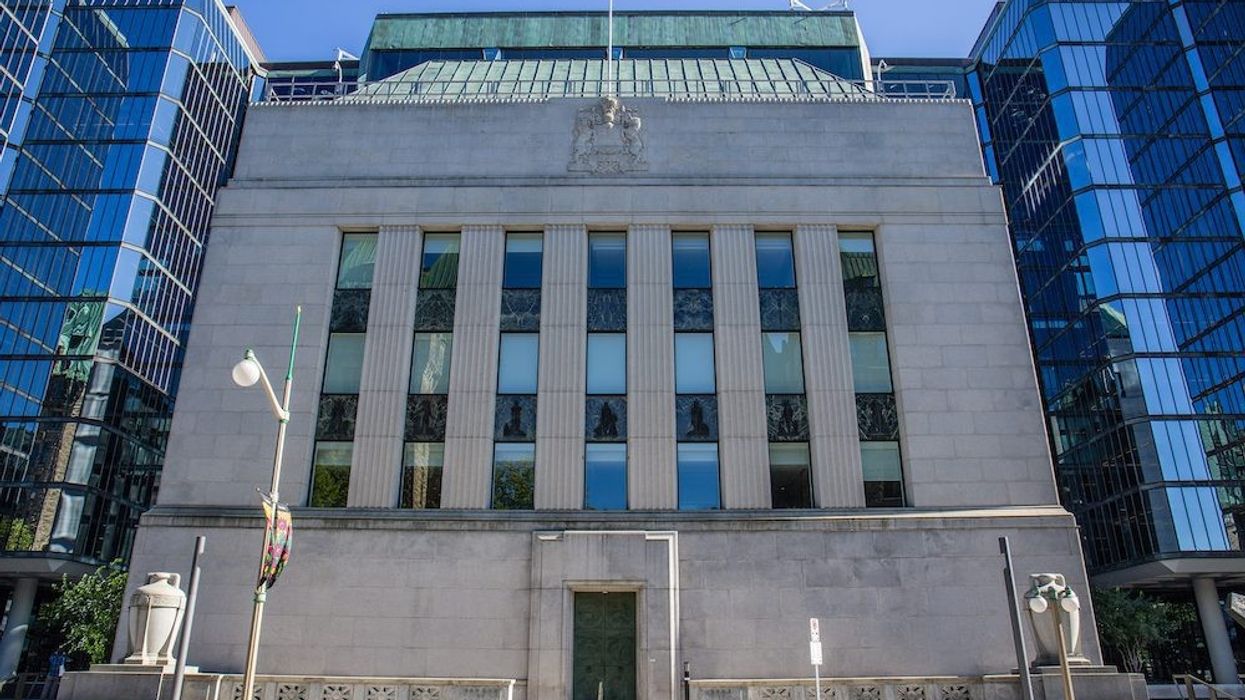As the Bank of Canada continues its interest rate hiking cycle, an increasing number of Canadians are worried about their finances.
Two recent reports, one from economic consultants Capital Economics and the other from accounting and business advisory firm MNP LTD, both came to the same conclusion: Canadians are in an increasingly precarious financial situation.
The MNP report found that more than half of the Canadians surveyed -- 52% -- said they are already feeling the effects of the two recent increases in interest rates. The first was a 0.25% increase in March, followed by a 0.5% hike in April. Following the second increase, Canada’s largest consumer lenders began factoring higher interest rates into their pricing for variable-rate products, with Prime rates up to 3.2% across the board.
With the Bank of Canada's interest rate expected to keep jumping throughout the rest of the year, a whopping 39% of Canadians surveyed said that the rising rates could drive them closer to bankruptcy. This is up four percentage points since December. Also up is the number of Canadians who said that they are more concerned about their ability to pay their debts, rising three percentage points to 57%.
“The affordability crisis, fueled by rises in the cost of living and interest rates, is increasing the financial pressure among Canadian households,” said Grant Bazian, president of MNP LTD. "Many are likely to rack up more debt to keep up with the rising costs of their daily expenses, but as interest rates rise, so will the cost of servicing some of those debts, making it more difficult to pay them down. Once that cycle of debt begins, it is extremely hard to break free of.”
A majority of Canadians -- 57% -- said they are concerned about the impact of future interest rate increases, while 22% said they are not financially prepared to deal with a rate increase of 1%. Of the nearly two million Canadians who will be renewing their mortgage in the next 12 months, 91% said they are being more careful with how they spend their money. But perhaps the most shocking statistic of all is that nearly half of all households -- 49% -- reported that they are $200 away or less from not bring able to meet their financial obligations, including 31% who say they already don't make enough to cover their bills and debt payments.
“Those who own a home or who plan to renew their mortgage are at a higher risk when it comes to being unable to absorb higher interest rates," Bazian said. "They will be facing higher monthly payments that could be dramatic. We are talking hundreds of dollars more per month that they hadn’t initially planned for. And with the increasing costs of food, gas and everything else, it is a perfect storm for some households that were already stretched to the max."
A Reliance on Residential Investments
According to the Capital Economics report, Canadian household debt hit 170% of disposable incomes at the end of 2021, which marks a 6% increase from immediately before the pandemic. Canada's economy, the report notes, is heavily reliant on residential investments, more so than any other G7 country. Any further rises in interest rates will cause a decline in these investments.
"The conundrum the Bank of Canada faces is that residential investment is the most rate-sensitive part of any economy," the report says. "Even if house prices don’t fall back, squeezing household wealth and weighing on consumer spending, we can expect some marked declines in residential investment, particularly from such a high starting point. With signs that housing is already slowing in response to the rise in mortgage rates over the past few months, we doubt the Bank will be able to raise interest rates much beyond 2%. If we’re wrong and it rushes to do so, the resulting downturn in housing will be much worse."
It's not just housing prices that are a cause for financial concern. The rapidly rising cost of living is weighing on Canadian wallets too. Inflation, Capital Economics estimates, surpassed 6% in March for the first time since the early 1990s. That, coupled with an 11% month-over-month increase in gasoline prices and a a 7.5% annual food inflation, has made making ends meet increasingly difficult. With gas prices expected to continue rising, there's no immediate relief in sight.





















